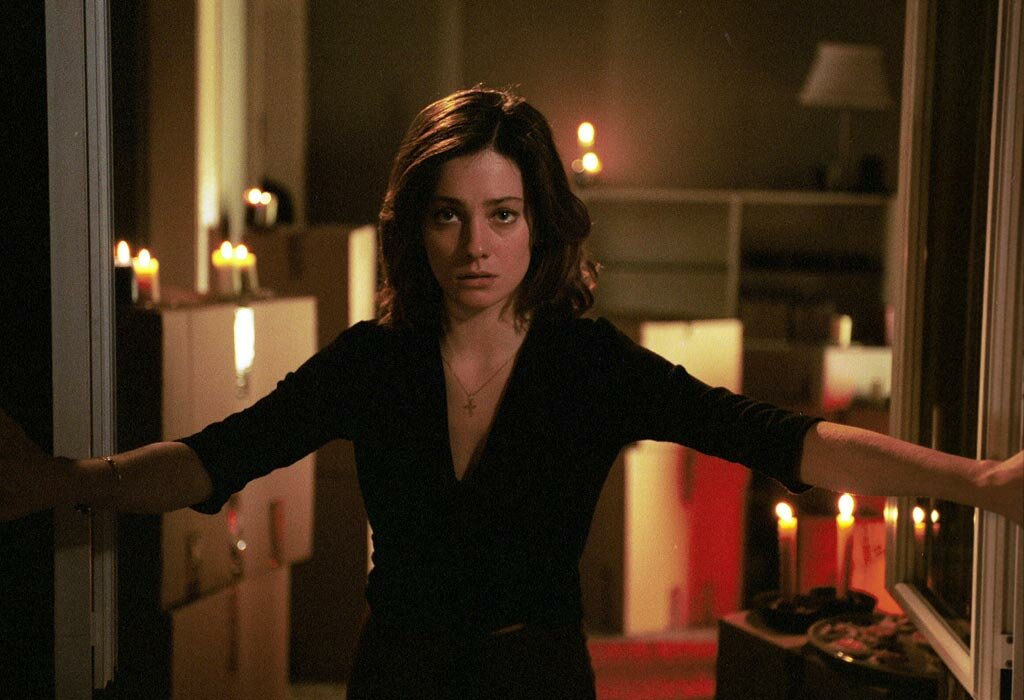If Italian culture is to help create a new national identity in the wake of the country’s history, then within that the idea of the ‘Other’ must come to the front. Those not considered to be ‘normal’ have faced prejudice from their own and have been outcast from society, as with elsewhere in the world. Italy is beginning to realise that minority groups considered to be the ‘Other’ in fact represent a large part of who they are. La Finestra di Fronte (Facing Windows) uncovers the process of identification in Italy, the links between past and present and the acceptance that follows.
Director Ferzan Ozpetek is a modern auteur known for concentrating on ‘Otherness’, his films often dealing with sexuality; gay relationships. Being of Turkish background, he also includes many immigrants as outsiders, engaging cross-cultural interaction with central characters. Writing all of his films, most stories come from memories that usually become reconfigured in a contemporary setting. Facing Windows draws on emotions that come from memory itself, as old Davide (the late Massimo Girotti in his final role) struggles to find who he really is, wandering through the present day with thoughts of war-torn 1943 in his head. Davide’s Jewish background represses him even in the present day, as does his love for Simone from his past. This secret relationship runs parallel to Giovanna’s some 60 years later, whose meeting Davide enables her to look for a difference in her life.
 |
The heroine of the story is typical of anyone in a mid-life crisis – married, but without passion or sense of direction. What Facing Windows does is use that as an entry into identification – if the audience connects, then the identification develops into what can become the dominant identity. Italy wants a national belonging that incorporates all its citizens, and this film helps engrave that in the public’s memory. Ozpetek is a European filmmaker that holds an obsession with recovering memory, which by many is seen as the key to identity. It is a part of Ozpetek’s reality, and in turn what he constructs reflects his perspective. The relationships of Davide and Simone, and Giovanna with neighbour Lorenzo are juxtaposed with exploring the modern identities of the characters and society in general. Ozpetek does this to make you see that the ‘Others’ are really no different to anyone else.
Giovanna and Lorenzo’s relationship comes through their facing windows, their curiosity getting the better of them after seeing into each other’s lives every day. Looking into a window is looking into a personal space, and Ozpetek uses this to show the secrets we hold. From Lorenzo’s hosting duties to Giovanna’s mundane routine and Davide’s flashbacks which intertwine the past and present, Ozpetek refreshes an arthouse technique, blending it in with Hollywood stylistic romance. It’s in his technique that we understand we aren’t watching Hollywood, but a national statement on Italian society then and now. His edits of characters’ looks are so important in reminding us of how we see people – and how they see us, and also that our realities are represented on film as identifiable.
 |
A choice of Giovanna’s in revitalising her life revolves around her job as a pastry chef. Through cooking she finds solace and shares this with Davide. New creations are a metaphor for a new reinvention in her life, and the inclusion of cakes can be seen as a reference to Italy’s increase in food consumption during the mid-20th century as well as temptation to follow the gluttonous or immoral path. The love that Giovanna and Davide have for cooking is reflected in the presentation, in which perfection can be linked to an idealistic view of love. However, Ozpetek doesn’t let us all the way in. True to national cinema, he withholds information and uses music instead of words to convey a response. Emotion is what matters, and the expression that Ozpetek gives us links back to Italy’s cross-cultural issues. As much as the search for national identity has progressed, treatment of refugees and migrants has not. Italy’s multiculturalism stems from the complexities of the WWII era and Mussolini, who failed to start an empire in North Africa and Albania, and this still holds many implications for Italians today.
Facing Windows tackles Italy’s identity issues from ‘Other’ eyes and suggests that the minorities do have an increasing voice. Davide’s presence provides Giovanna with options so similar to his own, which may suggest nothing has changed. Italy does have an ugly side to its past, and the implicating wounds are only now starting to heal. Ozpetek’s films show that in modern Italy neither open sexuality nor multicultural relationships should be considered taboo, and Facing Windows provides a reason for Italians to believe it.
 Follow the author Katina Vangopoulos on Twitter.
Follow the author Katina Vangopoulos on Twitter.


![Loose Cannons [Mine Vaganti] (Review) Loose Cannons [Mine Vaganti] (Review)](/wp-content/uploads/67_1824mayin_11-150x150.jpg)












